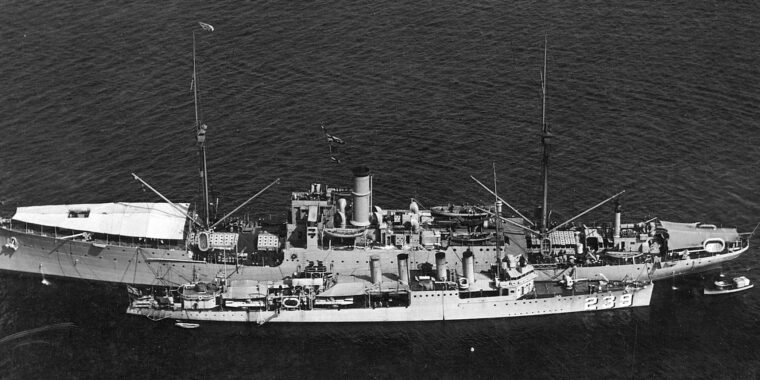
Axis
The USS Vestal: The Pearl Harbor Attack & Beyond
by Glenn BarnettOn Saturday, December 6, 1941, the repair ship USS Vestal eased alongside the USS Arizona at her berth at Pearl Harbor. Read more

Axis
On Saturday, December 6, 1941, the repair ship USS Vestal eased alongside the USS Arizona at her berth at Pearl Harbor. Read more
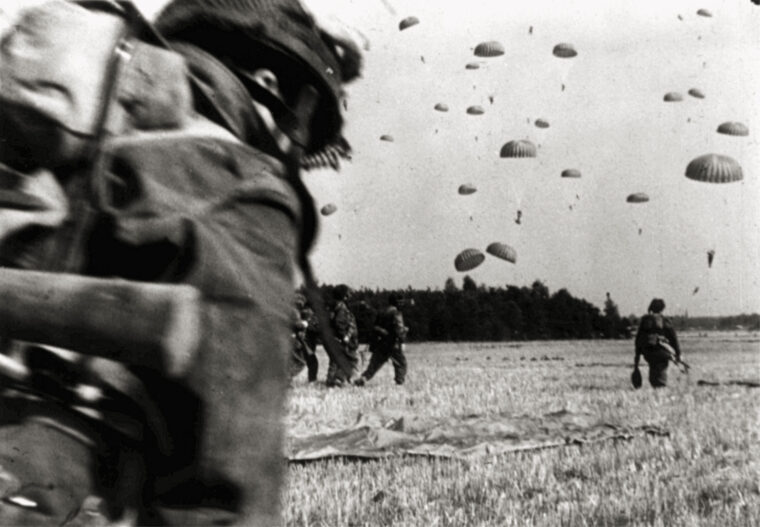
Axis
Two men were seated on either side of a paper-strewn table inside an office of MI5, the British intelligence service, in the Royal Victoria Patriotic School at Clapham, London, shortly after the fall of France in the spring of 1940. Read more
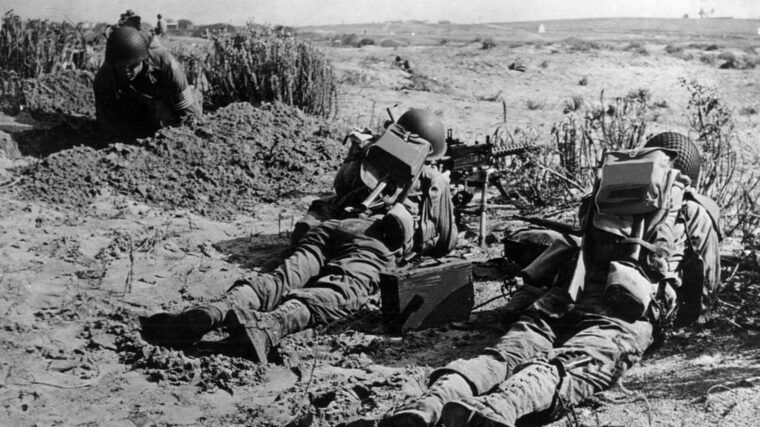
Axis
Rain battered the shore and the seas were rough on the night of October 21, 1942. Under the surface of the water, a submarine carried the Allies’ best hope for turning the tide of war in 1942. Read more
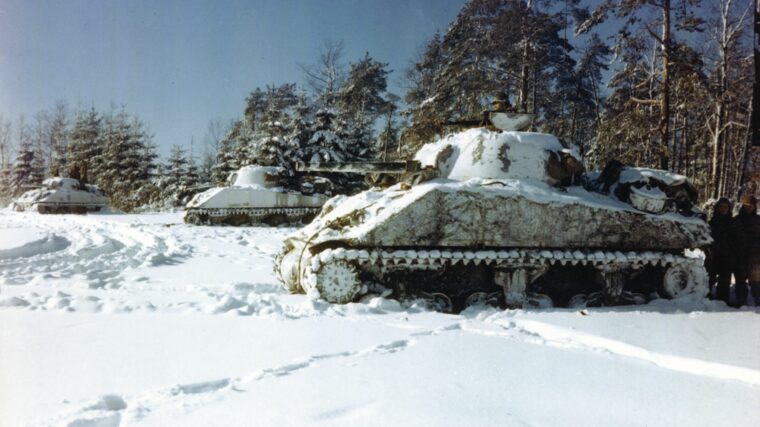
Axis
The U.S. 9th Armored Division arrived in the European Theater of Operations in late October 1944 as a reserve for Maj. Read more

Axis
Most writings about World War II tend to attribute the success or failure of military operations to the skill with which generals and admirals handled their forces in battle and to the fighting abilities of soldiers, sailors, and airmen. Read more
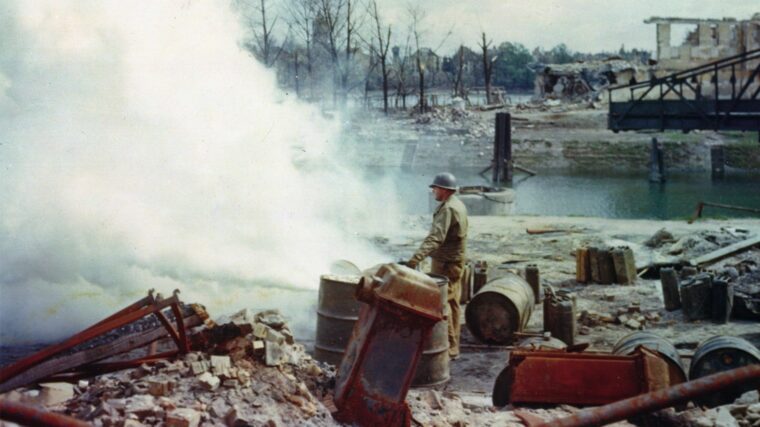
Axis
With the defeat of the German Seventh Army and the closing of the Falaise Gap in the summer of 1944, the Allies pursued the retreating enemy across France. Read more
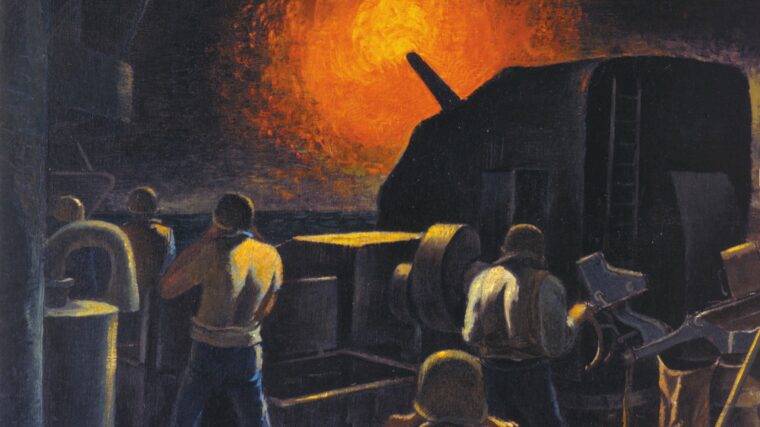
Axis
With bond clerk Marge Henning standing by as a witness, Colonel Frank Eldridge removed the first piece of the puzzle. Read more

Axis
It was unbelievably dull and uncomfortable duty, often interspersed with moments of sheer terror and the possibility of sudden and violent death. Read more
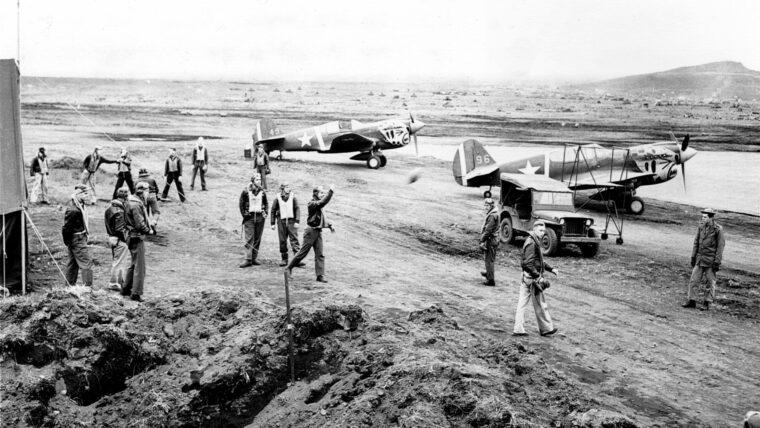
Axis
Charles D. Mott was a U.S. Navy dive-bomber pilot when he joined the American Volunteer Group (AVG), the small band of Americans who flew under the leadership of General Claire Lee Chennault and became known to history as the Flying Tigers. Read more
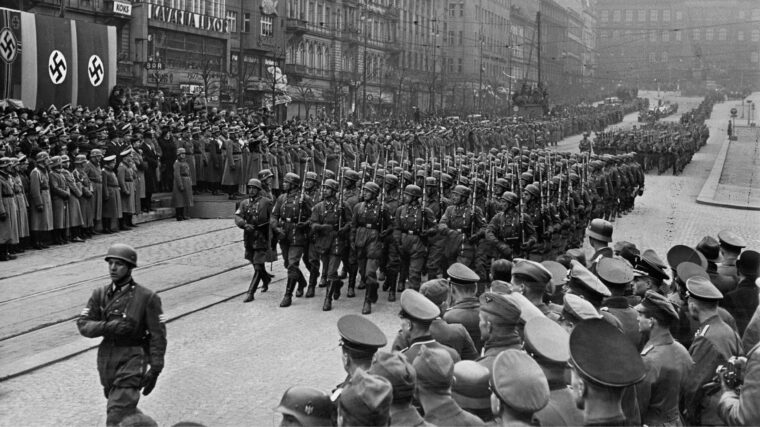
Axis
The first days of May 1945 found the German war machine in absolute chaos. Berlin had fallen, and entire German armies were surrendering en masse. Read more
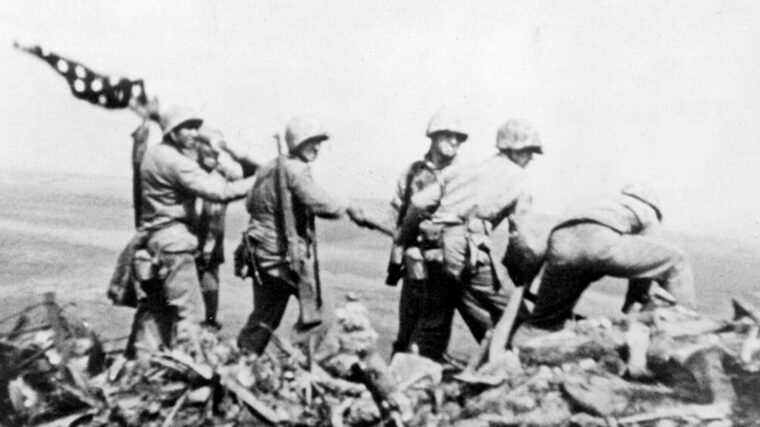
Axis
Everyone has seen the now famous photograph of the three firefighters hoisting Old Glory over the ruins of the World Trade Center. Read more
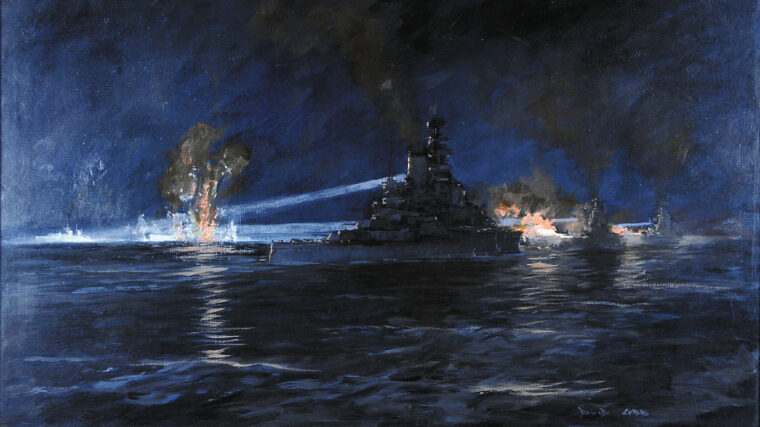
Axis
In June 1940, Italian dictator Benito Mussolini wrestled with a dilemma. German Chancellor Adolf Hitler was the very essence of a victorious warlord. Read more
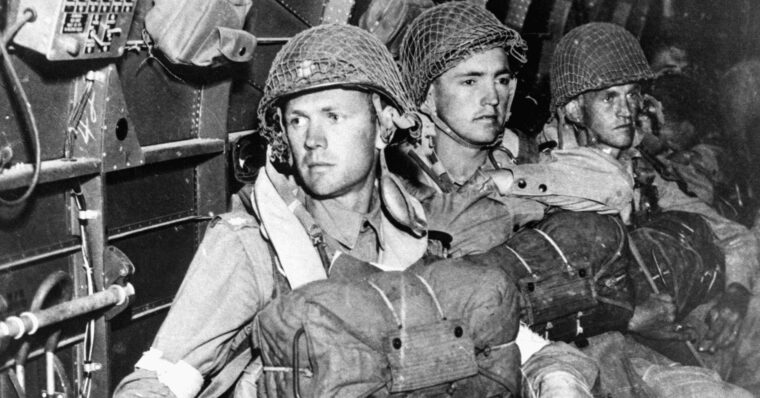
Axis
Letters were a valuable commodity to the World War II soldier. They were the link to home and to all things familiar in a most unfamiliar place and time. Read more
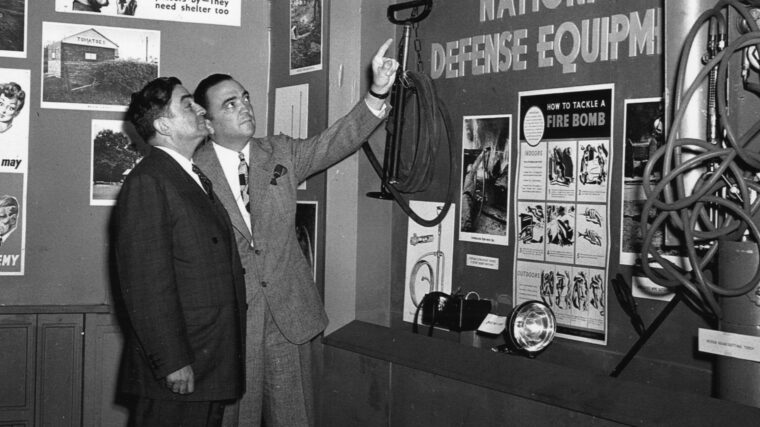
Axis
Throughout his lifetime, FBI Director J. Edgar Hoover always boasted that no enemy agent, either spy or saboteur, ever operated at large in the United States during World War II. Read more
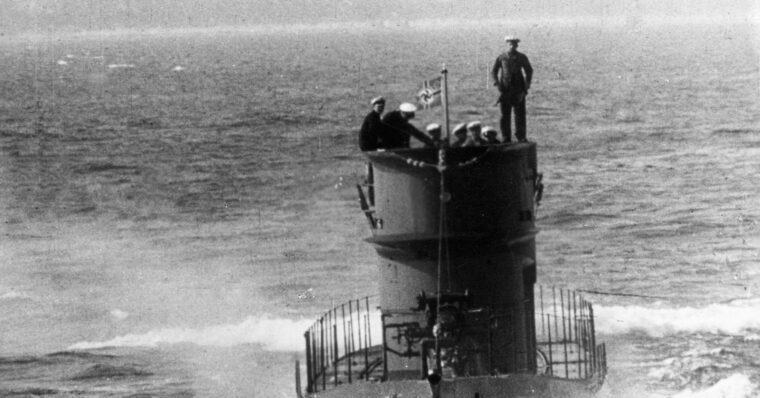
Axis
World War II had been in progress for six weeks when on the evening of October 12, 1939, the German submarine U-47 surfaced off the Orkney Islands at the northern tip of Scotland. Read more

Axis
In truth, it really was not a combat operation. For every airplane lost to enemy action, a hundred were destroyed in accidents. Read more
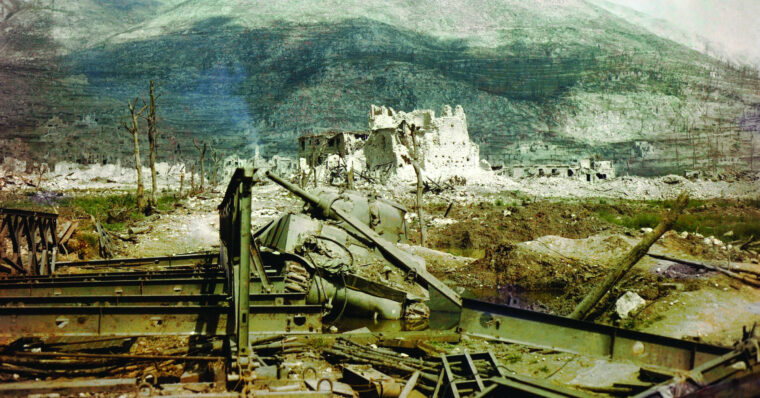
Axis
By December 1943, the phrase “sunny Italy” had evolved from being a travel agent’s selling point to becoming an ugly joke for the British and American troops of the Allied Fifth Army, advancing north from Naples to Rome. Read more
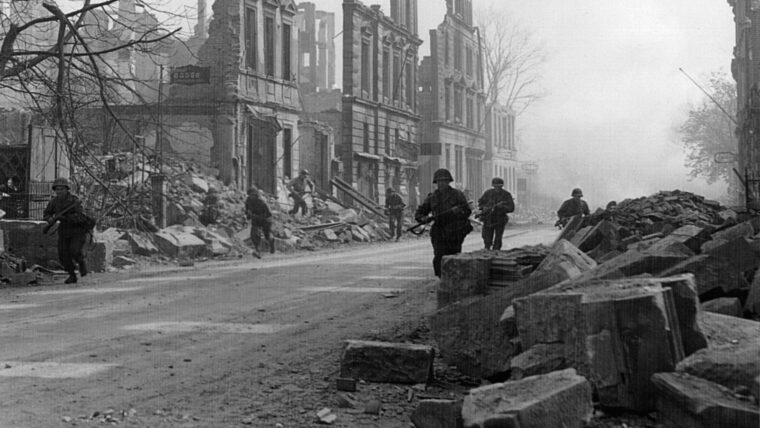
Axis
Following its swift advance to the Rhine, the American 100th (Century) Infantry Division resumed its pursuit of retreating German forces. Read more
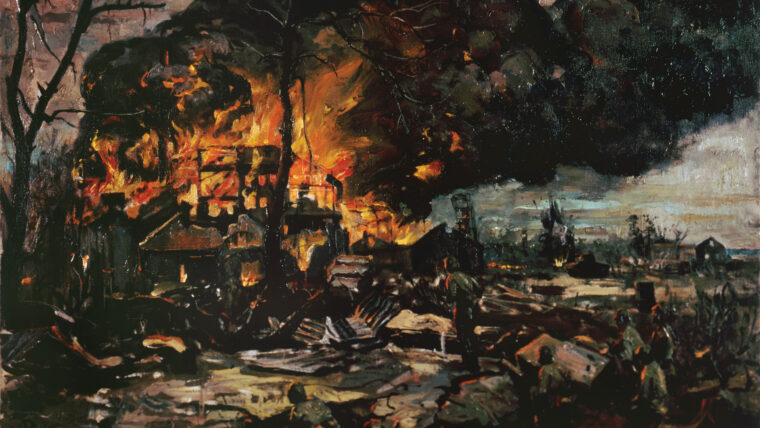
Axis
On June 10, 1944, as his troop transport churned through the Pacific toward the Japanese-held island of Saipan, Pharmacist’s Mate First Class Stan Bowen wrote a letter to his sweetheart, Marge McCann. Read more

Axis
On the morning of February 23, 1945, on the tiny Pacific island of Iwo Jima, a 40-man patrol gathered at the 5th Marine Division headquarters for their final briefing with battalion commander Lt. Read more